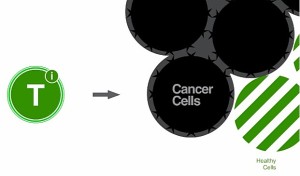 90% of Cancer Types will potentially respond to vaccine
90% of Cancer Types will potentially respond to vaccine
According to the WHO (World Health Organization), different forms of cancer are responsible for over 8 million deaths each year, with over 14 million new cases occurring globally each year. For the first time, BioTheraputics Company, Vaxil, is developing a cancer treatment called ImMucin that is not meant to treat a present disease, but to prevent its reoccurrence by training the immune system to recognize and attack cancerous cells.
Unlike most preventative “cancer vaccines,” which in effect are usually viral vaccinations against viruses that are known to lead to cancer, such as HPV (the human papillomavirus) which has proven links to cervical cancer, ImMucin works by training the immune system to attack certain cells which have markers that indicate the presence of cancer.
As the cancer returns, the immune system will be prepared to know which cells to destroy and which to leave untouched.
ImMucin differs from the traditional vaccination method however, in that rather than being given as a preventative measure for all cancer, it is most effective for patients who have already been diagnosed with cancer. The key to its success is to introduce the drug during the patient’s early stages of cancer; this way as the cancer returns, the immune system will be prepared to know which cells to destroy and which to leave untouched.
According Vaxil CFO Julian Levy, “ImMucin is not a replacement for traditional cancer treatments such as chemotherapy or radiation. Rather, the company is targeting a different stage in the patient’s battle against cancer, specifically the early stages of the detection, as well as during remission.”
So far, this new vaccine has been achieving clinical success for its effective treatment of multiple types of cancer.
So far, this new vaccine has been achieving clinical success for its effective treatment of multiple types of cancer. For the last few years, Vaxil’s clinical research was focused mainly on Multiple Myeloma, successfully completing Phases I and II of clinical trials. However, in January of 2014, they began evaluating metastatic breast cancer patients in combination with hormonal therapy, with plans to continue forward.
Likely to reach the market within this decade; keep you eyes out for ImMucin. With its potential to treat up to 90 percent of cancers, this new treatment could prove to be the next great leap and bound so many are waiting and hoping for in the search to cure cancer.




